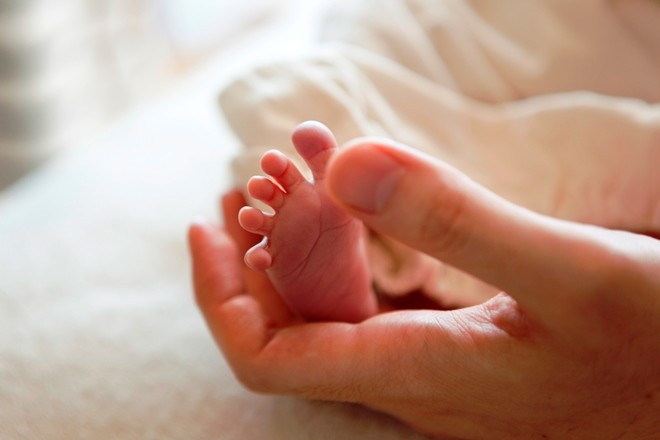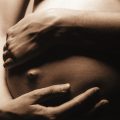Abnormalities in weight in newbornskids are found more often. Often, this is to blame genetics, the way of life of parents before and during pregnancy, intrauterine infections, the state of health of the future mother and the child. But when there are no objective reasons for the effect on the fetus, scientists are beginning to look for other factors of influence. For example, in the external environment. And sometimes they come to very interesting results. Photo:GettyImagesSo, scientists from the National Institute of Child Health and Human Development in the United States, finding out why full-term babies weighing less than 2.5 kilograms are born, decided to pay attention to ... the weather. They analyzed information on 220 thousand babies born in 19 hospitals in the country from 2002 to 2008. First of all, they were interested in the weather accompanying the birth of the babies. And they did not just check whether the sun was shining or raining on the day of birth. Then they would not be scientists. Appreciate the truly titanic work: for each newborn, they calculated the average air temperature in each trimester of pregnancy, as well as the average air temperature throughout the pregnancy. The findings were shocking. It turned out that women who carry a baby in extremely hot or abnormally cold weather (of course, relative to their place of residence) risk giving birth to a low-weight baby even after 37 weeks. Scientists have concluded that if it was too cold during the second and third trimesters or too hot during the third, the risk of giving birth to a lightweight increased by 18-31 percent. If the abnormal weather continued for the entire nine months, the probability of giving birth to a low-weight baby increased by 2.5 times or more. And these results were not affected by any other factors, such as the sex of the child, the mother’s weight, or heredity. “We don’t yet know the reasons for this phenomenon,” Live Science quotes the lead author of the study, Paulina Mendola. “Perhaps, at extreme temperatures, the blood flow to the uterus decreases, and this affects the growth of the fetus. These results show the need for additional research. In addition, biologists want to know whether women stayed at home or walked a lot during the abnormal periods. Whether they used air conditioners or heaters. Maybe this sounds absurd to us, but for scientists this is a potentially significant factor affecting the health of the child. In the meantime, scientists recommend that expectant mothers stay indoors during stifling heat or severe cold.
Photo:GettyImagesSo, scientists from the National Institute of Child Health and Human Development in the United States, finding out why full-term babies weighing less than 2.5 kilograms are born, decided to pay attention to ... the weather. They analyzed information on 220 thousand babies born in 19 hospitals in the country from 2002 to 2008. First of all, they were interested in the weather accompanying the birth of the babies. And they did not just check whether the sun was shining or raining on the day of birth. Then they would not be scientists. Appreciate the truly titanic work: for each newborn, they calculated the average air temperature in each trimester of pregnancy, as well as the average air temperature throughout the pregnancy. The findings were shocking. It turned out that women who carry a baby in extremely hot or abnormally cold weather (of course, relative to their place of residence) risk giving birth to a low-weight baby even after 37 weeks. Scientists have concluded that if it was too cold during the second and third trimesters or too hot during the third, the risk of giving birth to a lightweight increased by 18-31 percent. If the abnormal weather continued for the entire nine months, the probability of giving birth to a low-weight baby increased by 2.5 times or more. And these results were not affected by any other factors, such as the sex of the child, the mother’s weight, or heredity. “We don’t yet know the reasons for this phenomenon,” Live Science quotes the lead author of the study, Paulina Mendola. “Perhaps, at extreme temperatures, the blood flow to the uterus decreases, and this affects the growth of the fetus. These results show the need for additional research. In addition, biologists want to know whether women stayed at home or walked a lot during the abnormal periods. Whether they used air conditioners or heaters. Maybe this sounds absurd to us, but for scientists this is a potentially significant factor affecting the health of the child. In the meantime, scientists recommend that expectant mothers stay indoors during stifling heat or severe cold.

Making Money with Desserts: Success Stories
Evgeniya Polischuk (Fedutinova) instagram:@evgeniyafedutinovavk.com/janeshomebaking– It all started with baking for family and friends. Gradually, I started posting photos of my baked goods on Instagram – and orders started coming in. I made my first custom-made cake on October 13, 2014, and a little earlier I started making macaroons and cupcakes. You could say that the business “found me”, I am very […]

Soups are cold recipes with photos
Cold cucumber soup with yogurt and lemonsorbet from the chef of the restaurant La Taverna Alexander Zhurkin Photo: Getty Images Ingredients: Plain yoghurt – 125 g Cucumber – 150 g Lemon/lime sorbet – 50 g Cocktail shrimp – 24 g Fresh ginger juice – 1 g Lime juice – 5 g Fresh orange juice – 5 g Parsley – 1 g Pink pepper – 1 g Watercress – […]

barbeque kebab
Pork tenderloin in glaze Photo:Dmitry Bayrak/dbstudioPreparation time: 20 minutes + marinating time.Calories: 454 kcal per serving.For 4 servings: 4 pork tenderloins (approximately 300 g each), 1 onion, 2 cloves of garlic, 1 tsp. lemon zest, 1 tsp. lemon juice, a pinch of ground cumin, coriander and turmeric, 1 tbsp. vegetable […]

Pierre Duacan: dietary recipes: Ducane diet
Beetroot soup Photo:Season’S, Luxury Hotels RepresentationYou will need:· Boiled beetroot – 60 g· Fresh cucumbers – 20 g· Red radish – 20 g· Green onions – 10 g· Egg – 1 pc.· Drinking mineral water – 200 g· Salt – 1 gPreparation:· Boil the egg and beetroot.· Grate the cucumbers, radish and part of the beetroot. Put everything […]





